What a relief to hear the writer Ayelet Waldman, author of Love and Treasure, exhort mothers to tell the truth, “even – no, especially – when the truth is difficult”. (Guardian, 19/04)
Not only is motherhood not always what it’s cracked up to be, but women are left isolated and sometimes, children put at risk, as we are too afraid to ask for help or let off steam by talking honestly. It’s time to tell the truth. Mothers, shout it from the rooftops.
We don’t want to hear a mother’s truths: we don’t want to know about her struggle with herself as she wrangles her children. We don’t want to know about her resentment or even hatred for her child; we close our ears when she lets slip that she finds motherhood boring, unfulfilling or terrifying. We want mothers to hide their complexity because complexity maketh a monster.
As a mother, I, too, have hidden behind the lies and half-truths, been ground down by the political and patriarchal policing of motherhood that Waldman writes about. I, too have been a member of that exhausted congregation, soaked up each commandment on perfect parenting. You’re not feeding them right. You didn’t breastfeed long enough. You’re allowing too much screen time. You swear too much. Let alone the questions that trap women in the good-bad, angel-monster dichotomy of femaleness: are you back in your pre-baby jeans? Bonding with the child? Having enough sex? How’s that career? House looking beautiful?
Despite having close relationships with other women in which I can discuss many intimate details of my life, there exists a taboo against admitting that we might not find motherhood as satisfying or riveting as we’d hoped. Though I adore my children there have been times when if I could have, I’d have handed them back. But would most women admit that? Not a hope.
As a daughter I have viewed my own mother through the lens of fear and loathing because she didn’t fit the “mother” mould. As a little girl I remember my horror as she told me not to call her “mum” and warned me off having children. What freak would describe being a mother as “hell on earth?” Raising three children alone, she was no freak, I see now, but a young woman under pressure who sometimes resented her children.
As a young girl I couldn’t see her as human, as having needs that weren’t being met. As a woman, and now, as a writer, I see the horrendous strain she was under.
As a novelist I’ve freed myself. My need to understand my mother’s ambivalence, to reclaim my own complexity and to find empathy, led me to Cora, the protagonist of my novel, Wounding.
Cora is, in fact, the everywoman; the everymother. She is knotty, broken in parts, confused; so damaged by what she perceives as her “lack” that she looks for punishment in self-harm. She, like so many mothers, is at risk of being completely subsumed.
“She pictures the children, their demanding, clutching limbs, their hungry faces, their toes and fingers, grasping, grasping. Natural demands that ask too much of her. She is defined by what she is unable to give. She is defined by her lack. She is lack, a void, a blank space that devours. Takes, takes, takes. She cannot give.”
I created Cora because I wanted to write from a female point of view that wasn’t simplistic. I didn’t want to reduce her to a stereotype. I wanted to test the reader: can you feel compassion for this flawed woman? Cora struggles to fit the expectations of her family and wider society. Does this make her normal or deviant? Unnatural? An aberration?
I was prepared for some backlash to Wounding but I’ve been surprised by how many readers, in particular, women readers, have identified and empathised with her struggles.
There’s nothing ‘natural’ in our current blueprint for motherhood; as Waldman tells us too, women are the primary authors of our own subjugation. I want the story of motherhood to be rewritten, for just as women have begun to claim some equality we are reminded that we aren’t ready yet to be individuals, with our own motivations, tastes, passions and fears. We are trapped in the dichotomous territory of femaleness: good or bad, angel or monster.





